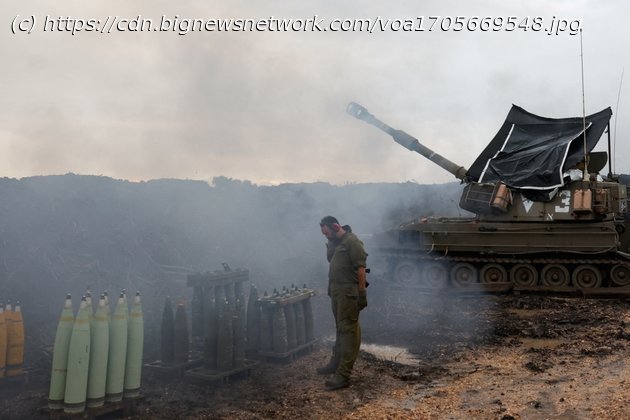Israel was set to launch a preemptive strike against Lebanons Hezbollah militia early in its war against Hamas but the strike was called off at the
Israel was set to launch a preemptive strike against Lebanon’s Hezbollah militia early in its war against Hamas, but the strike was called off at the last minute
Gadi Eisenkot, a former army chief and a member of Israel’s war cabinet, confirmed the planned strike and its reversal in a televised interview Thursday on Israel’s TV.
Eisenkot said he believed the strike would have triggered a regional war.
He and former Defense Minister Benny Gantz were against the move.
Eisenkot argued against the strike in an October 11 meeting until he was hoarse, he said.
A Wall Street Journal report last month said that U.S. President Joe Biden called Israeli President Benjamin Netanyahu and told him to stand down.
When Eisenkot was asked if his and Gantz’s presence in the war room helped to prevent a bad decision, Eisenkot replied, “Unequivocally.”
Deteriorating health care
In Gaza on Friday, the Hamas-run health ministry said that 77 people were killed overnight and dozens more were wounded as Israel pounded the southern Gaza city of Khan Younis with airstrikes and gunfire.
Several strikes occurred near Al-Amal hospital, according to the health ministry.
The deteriorating health care in Gaza is an increasing concern, the head of the World Health Organization said.
WHO Official: Gaza’s Health Care System Collapsing
Tedros Adhanom Ghebreyesus said 24 cases of hepatitis A, an inflammation of the liver, have been detected in Gaza and several thousand people have jaundice, presumably linked to undiagnosed cases of hepatitis A.
“The inhumane living conditions – almost no drinking water, clean toilets or ability to keep the surroundings clean – will allow hepatitis A to spread further,” the WHO chief warned in a statement on X, formerly known as Twitter.
The inhumane conditions are making Gaza one of the most dangerous places in the world for a child, said Ted Chaiban, the deputy chief of UNICEF.
Chaiban, who spent three days in Gaza this week, said that since his last visit two months ago, the decline in conditions there is staggering. If they continue to decline, he said, “we could see deaths due to indiscriminate conflict compounded by deaths due to disease and hunger,” he said in a statement.




![Święty JustynBł. Benigna: w walce o dochowanie dziewictwa straciła życie [+ modlitwa za młode dziewczęta] Jednego Serca Jednego DuchaFrench Open – Świątek awansowała do 1/8 finałuPolecamy](http://nhub.news/wp-content/uploads/2024/06/thumb8e4570acbb202ab189b4d78d8070341f-100x75.jpeg)

